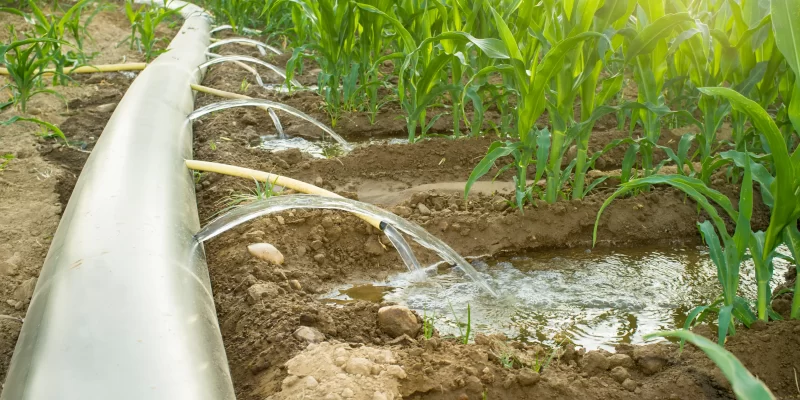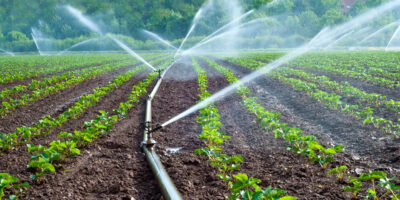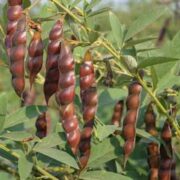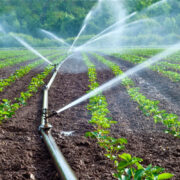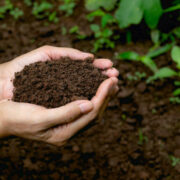Irrigation: Irrigation is the method of supplying water to the plant in an required amount and at the best time. The irrigation system has different ways to supply water to the plant. The water are more important for the plant growth and development of the plant . These water plays a major role from the seedlings stage to until harvesting sstage
It is an artificial application of water for the purpose of crop production.Irrigation water is supplied to provide suppliment the water available from
*Rainfall
*Contributon of soil moisture from ground water.
Benefits of irrigation water
Increased Agriculture production
Climate risk Reduction
Climate risk reduction
Drought resistance
There are different types of irrigation system which supply water to the crops for their growth and development. The commonly used methods are
Drip irrigation
Sprinkle irrigation
Surface irrigation
Open well irrigation
Drip irrigation
Drip is the method of irrigation in which the rate of water application is very low and without any pressure . The water is sPesticides: Pesticides and Classes of Pesticides, Effects and Advantages of Pesticidesupplied drop by drop to the plants. Drip irrigation is micro irrigation.
Water flows from the emission point through the soil by capillary and gravity.
Drip irrigation is one of the best irrigation as the water is supplied is to each and every plant and water is not wasted in this system
The soil moisture content is maintained at the root zone and optimum level to facilate crop growth and production.
Drip irrigation is used for crops like
Fruit crops: Banana,Grapes, Pomegranate, PapayaMango,Mosambi
Vegetables crops: Tomato,Okra,Chilli, Cabbage,Bean, Brinjal,Radish,Cucumber, Beetroot
Commercial crop: Sugarcane, Ground but, Cotton
Also Read: Pesticides and Classes of Pesticides, Effects and Advantages of Pesticides
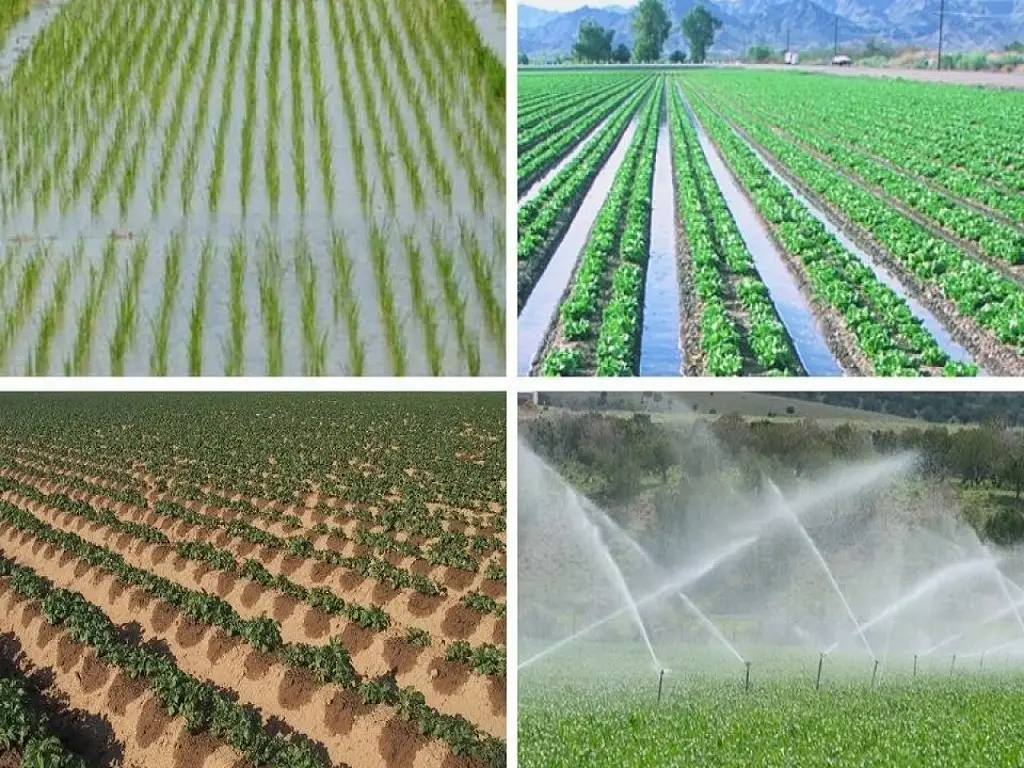
Irrigation
SPRINKLE IRRIGATION
Sprinkle irrigation is the application of water similar to natural rainfall.The sprinkle irrigation system
Sprinkle the water droplets to the plants. The pipes are arranged in the fields.
Objective of sprinkle irrigation
To reduce the erosion of soil that I’d common in surface irrigation system
To develop the well technique irrigation system in order to get significant saving in the consumption of water to irrigate the crops
To use soluble fertilizer and chemicals.
To control the water application convient for giving light and frequent irrigation and higher
Water application effiency.
To provide sufficient flow capacity to meeet the irrigation demand.
SURFACE IRRIGATION
Surface irrigation system is one the most used common system from many years ago. The water is distributed over the surface area through gravity. In these system the rain water and the well water are supplied to the crops. The channels are made in the field and supplied throughout entire field. These surface irrigation is very easy and don’t hold any modern techniques and these methods use in small land holdings. It is low cost and low maintenance and suitable for all types of soil.
Crops suitable for this irrigation
Maize, cotton, sugarcane…
OPEN WELL CHANNEL IRRIGATION
The open well irrigation system the water will flow with free surface area .All the irrigation like canals, drainage and natural stream are known as open well channel irrigation.
If a pipe flow partially then it is known as open well channel. They are divide into 2 types
Unlined Channel: In these the water are simply exvacated in natural soil,which are cheap and easily to construct
Lined channel: one of the most important source system of irrigation for farm sources. Lined canals are made from bricks, stones , cement, Canal lining are used to prevent the weeds growth and water is spread throughout out the system.
Crops grown in open well channel irrigation
Maize, Cotton ,Beans
Advantages of irrigation system
Irrigation plays a major role in increasing food production
Irrigation reduce the risk of expensive inputs being wasted by drought.
It is assure proper and successful growth of the crop because of assured supply of water
Irrigation Protects the farming from occurring of famines when rain water is severely deficient
The farmer having the benefit if the canal having near to the crop and the value of land increases
Some large canals serve the dual purpose of irrigation and land nnavigation.
Disadvantage of irrigation system
The land become alkaline and water logged if excess water is applied to the land as a result the land become infertile and it may not use for the cultivation.
The excess irrigation in the field remain as pools on the surface of ground
Drainage system may arise during the monsoon
Cost initial process.
Also Read: Animal Husbandry and their Diseases

